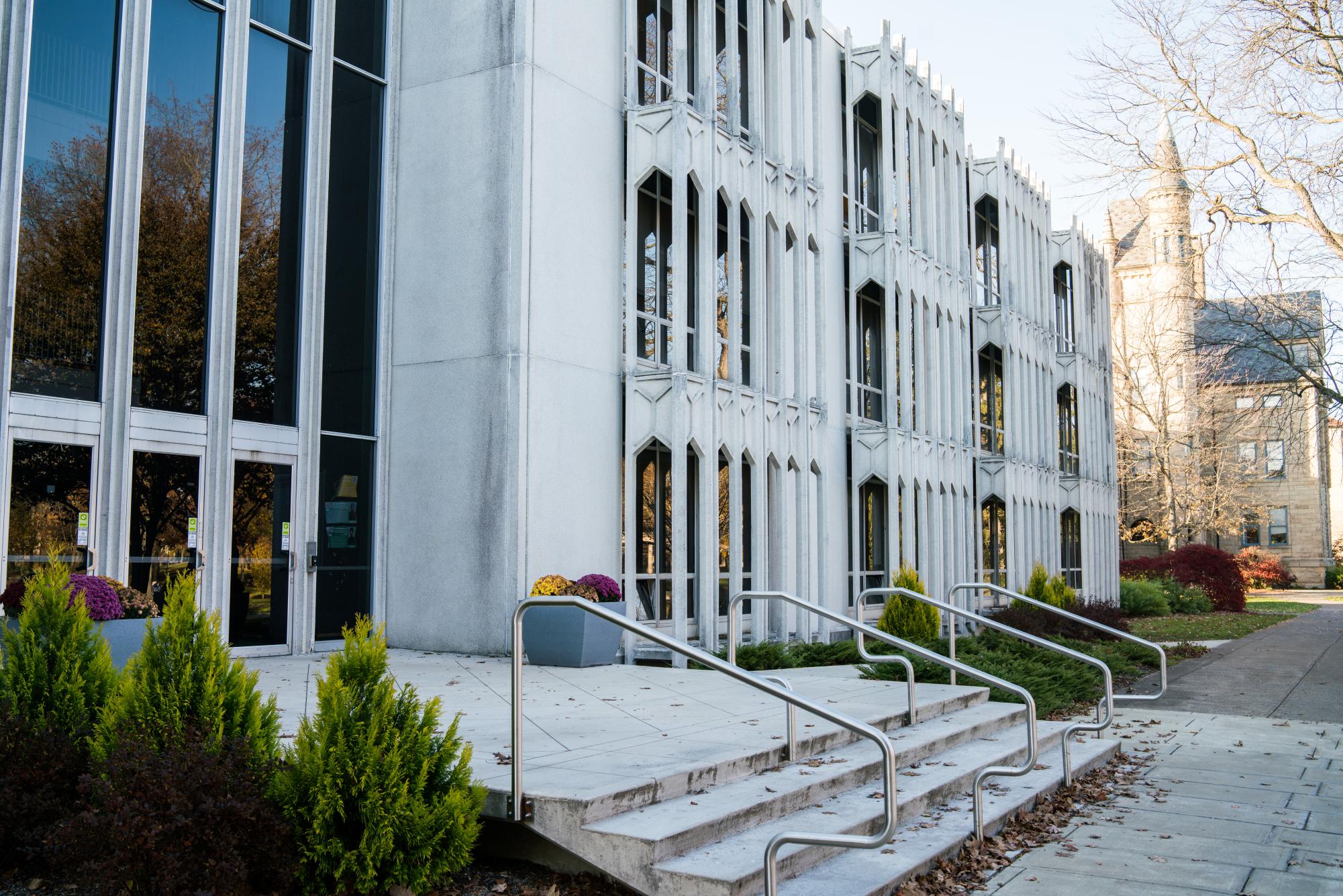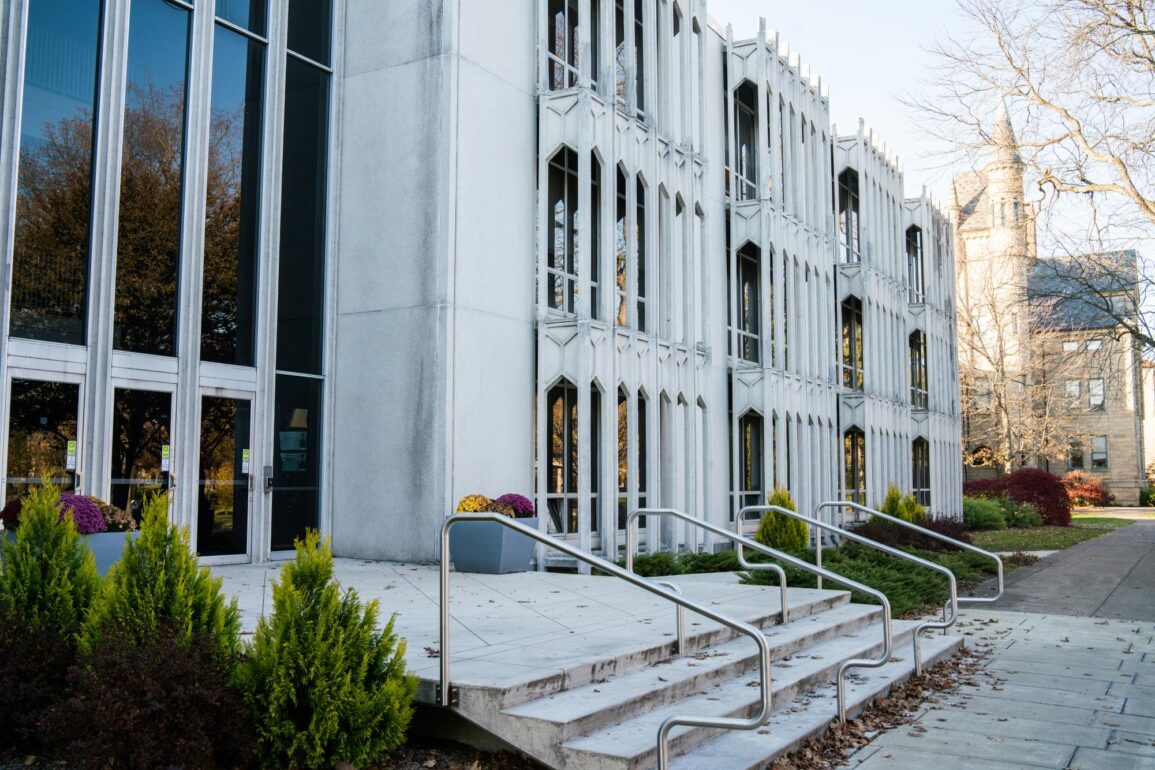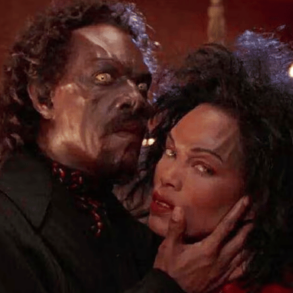
One of the reasons I was attracted to Oberlin was its Gender, Sexuality, and Feminist Studies major. I appreciated that I’d be able to explore my interest in gender studies, and valued the interdisciplinary and intersectional nature of the major, which aims to center issues of sexuality, queerness, and race within gender. As someone interested in the specific experiences of Black and queer women, this was very exciting to me. Unfortunately the major was not as intersectional as I had hoped.
My first semester at Oberlin, I enrolled in a course called Introduction to Gender, Sexuality, and Feminist Studies. I examined the syllabus with an excited eye. The readings were from many of my favorite authors and intellectuals like Angela Davis, Bell Hooks, and June Jordan, along with an array of authors whose work I had not been exposed to. Despite the diversity emphasized in the course readings, I attended the class and was surprised to find that I was one of a handful of students of color in attendance.
Over time I quickly noticed the impact that the racial makeup of the class had on student-led discussions. While analyzing systems of oppression was expected in classroom discussions, many students who were not POC discussed America’s systems of oppression without race in mind. When referring to America’s power system, which subjugates Brown, Black, impoverished, and queer people, students harshly critiqued the system, rarely acknowledging their own participation and place in upholding the system they critiqued. I remember a particular white student who would often remark on the amusingly cringey things white people would do. Afterward, many other white students in the class would agree and remarked on their own experiences of “ridiculous things white people would say.”
I listened both enraged and stunned — why did my white peers think that they were separate from the white people they were making fun of? They too were born into privilege and were just as capable of holding unfair biases toward people of color and making tone-deaf remarks. The harm of my peers’ comments is that they separated themselves from systems of oppression; it implied that by being woke and liberal, a white individual does not have the status of “whiteness” in America. By the status of “whiteness,” I refer to the inherent racial position of power and privilege of being born white in America. Privilege does not change based on one’s personal political views. When the white students in my classes refuse to acknowledge their own place in the racial hierarchy, they are not truly interrogating the systems of oppression which they are critiquing. In addition, these students harm their peers of color. Much of the privilege that white people hold and the experiences of racism that impact people of color are normalized. The normalization of Black and Brown people’s marginalization can make it more challenging for people of color to express themselves. When white Oberlin students separate themselves from systems of oppression, they, like much of the world they critique, are creating a culture where it becomes difficult for students of color to discuss their own marginalization. There is no acknowledgement of their experiences of oppression within Oberlin’s campus, even when, at times, the oppression is enacted by the white Oberlin students themselves.
Another aggravation I felt from my class discussions in my GSFS was the lack of intersectionality when discussing queer issues. While many students in the class had interesting things to say about issues affecting queer people, I noticed that, when I brought up the oppressive experiences of queer people specific to people of color, there would be few students who responded or added comments. Not acknowledging the ways queer experiences differ based on class and race can make it more challenging for queer students of color to feel comfortable in these spaces.
The lack of intersectionality in queer spaces at Oberlin is an issue I have felt beyond my GSFS class. Many of these spaces center the experiences of white students. I have found it incredibly difficult to engage in the queer community at Oberlin. I am a Black queer woman. I consider my sexuality an imperative aspect of my identity, but just as imperative, if not more so, is my racial identity. My race, gender, and sexuality are all inherently linked. When I feel I am being asked to separate these identities within a space, I do not feel comfortable.
Due to the ignorance and tone-deafness of many of my white peers, my Intro to Gender, Sexuality, and Feminist Studies class became a very challenging space for me to be in. There is something incredibly frustrating about discussing readings and issues that directly relate to one’s own identity and not feeling heard. I felt that my peers didn’t want to actually critique systems of oppression. Instead, it seems, they would rather use it as an opportunity to showcase their separation from other white and privileged people.
Once my class ended, I decided to shift my focus to other departments such as English, Africana Studies, and Politics in order to better engage with my own gender and racial identities. However, I truly wish that I had the opportunity to explore issues of race, gender, and sexuality within the GSFS major as I had desired upon coming to Oberlin.
If Oberlin students wish to study gender, sexuality, and feminism, they must acknowledge their own privilege and the specific experience of people of color within these areas. Without doing so, they fail to truly understand and analyze gendered systems of power. Oberlin’s students of color deserve to feel heard and cared for, especially in spaces which are intended to center marginalized experiences.
This post was originally published on this site be sure to check out more of their content.









